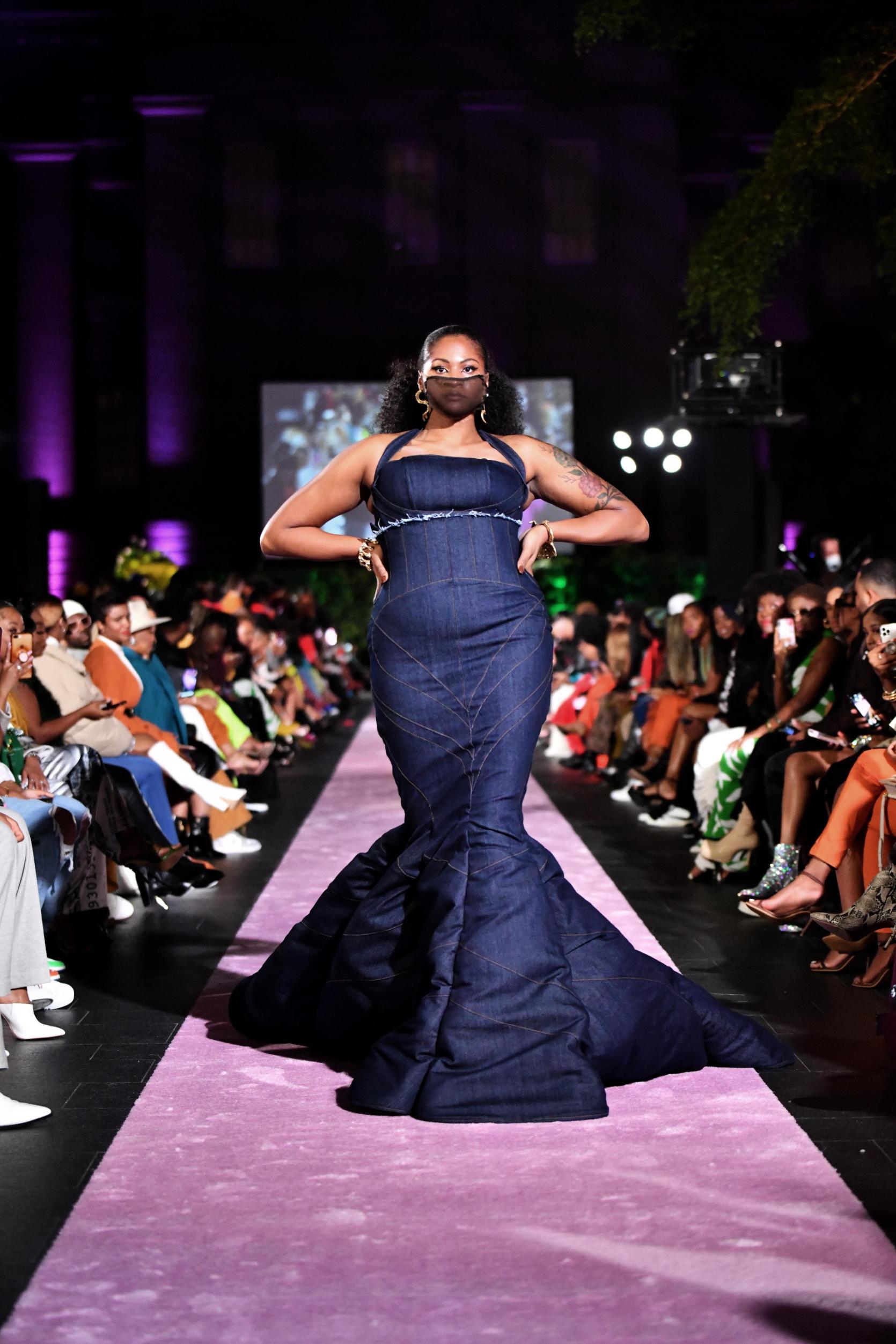In September, when the New York fashion scene converged for the city’s full return to live runway shows since the Covid-19 pandemic, one highly-anticipated brand was visibly absent from the runway. Months after being awarded a CFDA/Vogue Fashion Fund grant for emerging designers, Anifa Mvuemba, founder of women’s apparel label Hanifa, opted out of the Manhattan bustle with a simple message to its patrons: “stay tuned.”
Mvuemba has made a name for herself leading an independent Black brand committed to featuring primarily Black and Brown models, and offering inclusive sizing from 0 to 20. Hanifa, which is primarily e-commerce-based, has been worn by celebrities including Beyoncé, Tracee Ellis Ross, and Issa Rae.
On November 16, the brand finally held its first in-person show at the National Portrait Gallery in Washington, DC in the glass-ceilinged Kogod Courtyard. The Fall-Winter 2021 “Hanifa Dream” presentation celebrated the 10th anniversary of the brand and introduced an array of new pieces alongside classic Hanifa footwear.
“We were originally supposed to show during fashion week, but it just didn’t work. It didn’t feel right,” Mvuemba told CNN after the show. “And I was just like, ‘You know what? We’re just going to do it here.’ I started here (in DC) 10 years ago, and this is where we’re going to do our first show.”
Last year, Mvuemba made headlines for the virtual show of her Spring-Summer 2020 capsule collection held on Instagram Live. In lieu of models, the clothes were 3D modeled on headless, floating figures, giving the presentation a ghostly feel. The collection itself was a tribute to her Congolese heritage, employing her distinctive use of African-influenced color and silhouettes to pay tribute to the country’s women.
“I am so intentional about everything I do with this collection,” Mvuemba said at the time on her Instagram page. “If you’re African then you know about African seamstresses and how detail is so important, and the color is so important, and prints are so important. I really just wanted to use that in this collection, just to give tribute to African seamstresses.”
In “Hanifa Dream,” Mvuemba ventured into new textiles, debuting knit dresses, patent leather coats and structured gowns made of denim. Texture was a theme in the show, as Hanifa melded her signature asymmetric, structured garments into new tactile mediums. One of the first looks was a blue patent leather trench, signifying this expansion in technique.
Mvuemba’s label has a history of successfully redefining notions of how a fashion brand must reach its audience. Holding open casting calls to women in the DC area is one of the ways the founder has stayed true to this mission throughout her brand development.
“The world is changing, things are shifting, why do we have to follow what everyone else has been doing?” Mvuemba said.
At times considered a fashion outsider, Mvuemba initially founded her company with no external funding and she has organically grown her fanbase while continuing to operate from her Maryland studio. A lot of the brand’s visibility has been down to its relationships with historic Black publications like Essence magazine, and people of color in fashion, media, and entertainment spaces.
“When I started, I didn’t want to be labeled as an African designer because they are placed in a separate category,” Mvuemba said. “I always use African culture in my tailoring, which is so important. You see the seams, you see the structure, you see the beautiful prints. So, I just wanted to still have that and do it my own way. And that’s what I’ve been doing since I started.”

